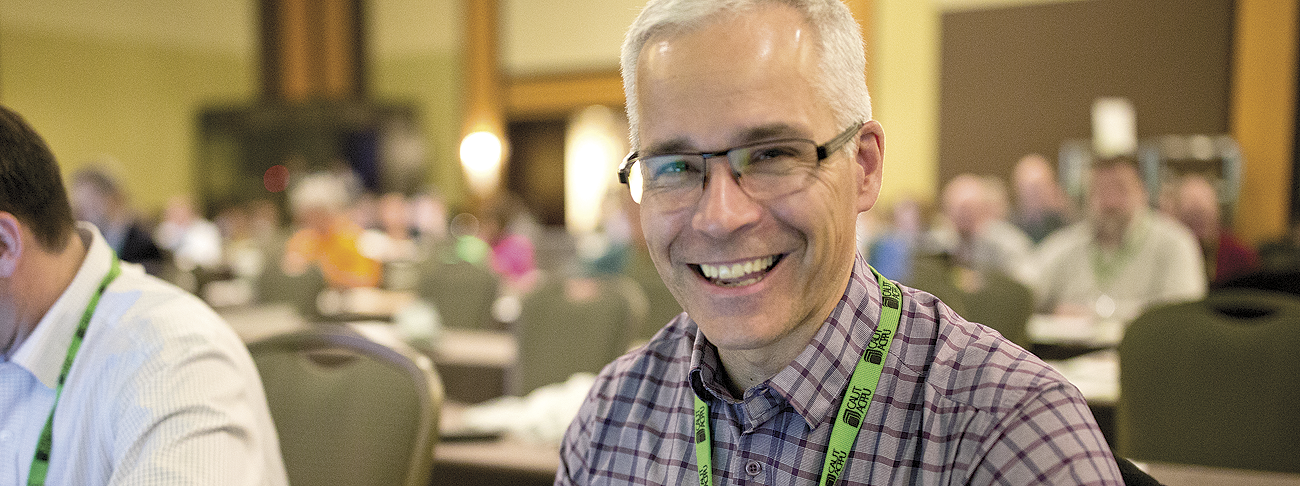
By James Compton
Where does hope for positive change in post-secondary education come from? Should we fix our gaze on the horizon, looking forward with confidence that the future will be bright? Or should we pause and take time to consider the past, to understand where we’ve been so that we may avoid the follies of unintended consequences?
I’ve been considering these questions of late in the wake of observing the unrelenting sales pitch of “entrepreneurialism” on campus. The examples vary: seminars on how to collaborate with business community “partners,” tips on how to better use social media to promote one’s research, “networking” opportunities with other scholars, and pitches to use a wide range of new online technological services — from promotional videos to Amazon’s crowdsourcing marketplace Mechanical Turk. The message in each case is delivered with an unrelenting “can-do” positivity. “Join us in creating the brave new world,” is the universal battle cry on campus.
You might ask: what is wrong with that? Change, in service of the public good, must begin from the premise that it is possible. Surely negativity is its enemy. True enough. We must always fight against the social paralysis of cynicism.
But here, we might do well to remind ourselves of some very old advice from the ancient Greek myth of Prometheus — itself, a legend about the fate of humankind and knowledge. Prometheus, whose name meant forethought, along with his brother Epimetheus (hindsight), were titans charged by the Greek god Zeus with imbuing humanity and animal creatures with their unique characteristics. Prometheus creates man from clay, and later, defies Zeus by stealing fire (techne) and giving it to humanity. In retaliation, Zeus chains Prometheus to the Caucasus Mountains where an eagle eats his liver each day, after the immortal’s organ regenerates during the night. Zeus also sends Epimetheus a gift — Pandora (all gifts), the first woman, who carried with her a jar. When opened, against the advice of Prometheus, the jar unleashes all the world’s spites, diseases and evils. All that is left inside is hope.
There are multiple versions of the Promethean myth. But in Prometheus Bound, Greek tragedian Aeschylus expands on the gift of fire to include science, medicine, agriculture and the cultural arts — the basis of humankind’s civilization. Aeschylus, however, goes further to suggest that Prometheus “sowed blind hopes to live as their companions.”
Knowledge creation and its dissemination, the core work of a university, has been, and will continue to be, a catalyst for cultural and scientific progress. But our actions must not fall prey to the hubris of delusional hope. Such is the siren call of promotional sloganeering. The sales pitch of brand recognition should not be confused with scholarly dissemination of knowledge. For in the former we find an endless positivity mired in a never-ending present mindedness.
True knowledge — of self and of society and nature — can often make us feel uncomfortable. Challenging closely held shibboleths makes one uneasy, forcing us to examine core assumptions and received wisdom and history. Empty phrases, such as “moving forward,” now a commonplace of utilitarian managerial discourse, are symptomatic of the problem. The hollowness of the phrase is used as a rhetorical backstop. The next time you hear someone in authority begin an address with “As we move forward…” ask yourself two questions: 1) barring the existence of a time machine, what other choice is there? and 2) why shouldn’t we look backwards?
Prohibitions against dwelling on the past are often couched in terms that suggest a personal failing or overriding negativity. But in order to build a better future we must learn from the past, and to do otherwise, is to engage in ahistorical thought. Our technological prowess has given society wondrous tools such as the Internet and social media. But they have come with dire un-intended social consequences stemming from the manipulation of online misinformation and the struggle over the meaning of so-called “fake news.”
Denying the ability to look backward is to negate the social benefits of looking forward. When addressing problems such as the growth of precariously employed contract academic staff, or the lack of faculty renewal on campuses, real hope for change comes from our ability to challenge the present-mindedness of spectacularized promotional discourse whose promise is always the same — “whatever appears is good, and whatever is good will appear.” The truth about having one’s eyes happily fixed on the horizon is that no matter how long you walk it never gets closer.